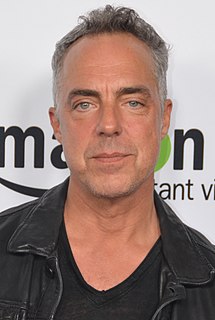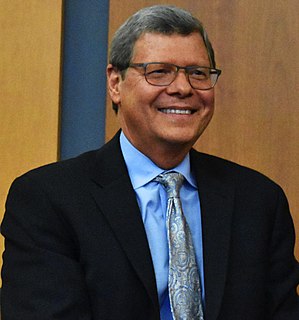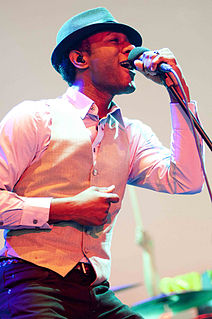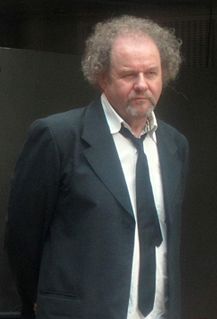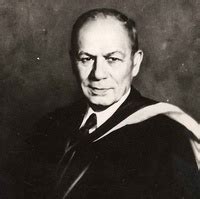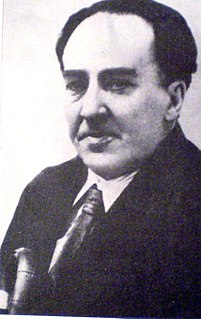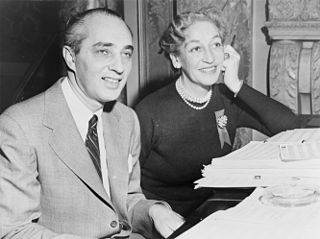A Quote by Pierre Hadot
One of the characteristics of the university is that it is made up of professors who train professors, or professionals training professionals. Education was this no longer directed toward people who were to be educated with a view to become fully developed human beings, but to specialists, in other that they might learn how to train other specialists. This is the danger of "Scholasticism," that philosophical tendency which began to be sketched at the end of antiquity, developed in the Middle Ages, and whose presence is still recognizable in philosophy today.
Quote Topics
Ages
Antiquity
Become
Began
Beings
Characteristics
Danger
Developed
Directed
Educated
Education
End
Fully
How
Human
Human Being
Human Beings
Learn
Longer
Made
Middle
Middle Age
Middle Ages
Might
Other
People
Philosophical
Philosophy
Presence
Professionals
Professors
Recognizable
Scholasticism
Specialists
Still
Tendency
Today
Toward
Train
Training
University
Up
View
Were
Which
Whose
Related Quotes
I came from an educated, upper middle-class family. My mother was a Persian and history teacher at a large high school for girls. Many of the women in my extended family and in our circle of friends were professionals. In those days, women were a vital part of the economy in Kabul. They worked as lawyers, physicians, college professors, etc., which makes the tragedy of how they were treated by the Taliban that much more painful.
Since philosophy is the art which teaches us how to live, and since children need to learn it as much as we do at other ages, why do we not instruct them in it? .. But in truth I know nothing about the philosophy of education except this: that the greatest and the most important difficulty known to human learning seems to lie in that area which treats how to bring up children and how to educate them.
The urgency for me is to hurry up and become visible enough to either influence or shame other artists or corporations into understanding that there needs to be an equal starting block. You can't rush to make the changes. The rush that I have is to change the mindset of the people who can actually influence the situation in developed countries and in under - developed countries ... and not all under-developed countries need to develop. Maybe they just need to learn and be re - given the tools to understand how to use the land that they live on.
I think it would help if, when people are first ordained, they underwent a period of strict training, maybe for several years. During this time they would learn basic Buddhist philosophy in a monastic community where all the teaching and training was directed toward living a perfect monastic life and wasn't channeled out to fit into the lay life - which is what usually happens in Dharma centers where the teachings are directed toward how to live the Dharma in your everyday life.
Without even knowing why, we believe that to learn how to be human - which we have many years to do, for human beings have longer childhoods than any other species, a feature that to biologists and philosophers alike is one of our race's distinguishing characteristics - children must be surrounded by animal imagery.
During all the first part of the Middle Ages, no other people made as important a contribution to human progress as did the Arabs, if we take this term to mean all those whose mother-tongue was Arabic, and not merely those living in the Arabian peninsula. For centuries, Arabic was the language of learning, culture and intellectual progress for the whole of the civilized world with the exception of the Far East. From the IXth to the XIIth century there were more philosophical, medical, historical, religiuos, astronomical and geographical works written in Arabic than in any other human tongue.
A person is a person through other persons. None of us comes into the world fully formed. We would not know how to think, or walk, or speak, or behave as human beings unless we learned it from other human beings. We need other human beings in order to be human. I am because other people are. A person is entitled to a stable community life, and the first of these communities is the family.
Historical grammar is a study of how, say, modern English developed from Middle English, and how that developed from Early and Old English, and how that developed from Germanic, and that developed from what's called Proto-Indo-European, a source system that nobody speaks, so you have to try to reconstruct it.


